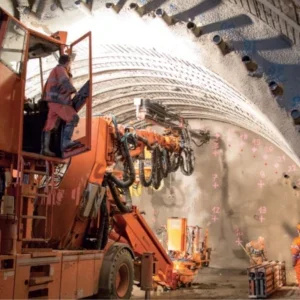But in doing so, it really brought it home to me that when I started work in tunnelling on 5 December 1975, the BTS had only been in existence for four years. I find this rather strange, as the BTS has always been part of my working life and you just become accustomed to it being there.
It would be remiss of me not to mention the previous chairman of the EAB, Myles O’Reilly, who held the position for many years up to May 2015.
The current times are very strange and changing how we all work. So many of us now work from home and use video conferencing for both work, not to mention dialling into the BTS monthly meetings.
Personally, I do not miss the commuting, but I do miss the people and the opportunity to have the traditional beer, sausage and chips after our meetings at the Institution of Civil Engineers (ICE).
As a voluntary organisation, the BTS is as good as its members who have, throughout its existence, given generously of their time and expertise to make the BTS into what it is today – a learned society that promotes tunnelling and best practice.
There have been many highlights during the past 50 years and I cite a few:
- Sir Alan Muir Wood’s paper on the design (modified by Curtis) of segmental tunnel linings.
- Myles O’Reilly and Barry New’s paper on tunnel settlement, 1982.
- The publication of the Joint Code of Practice for Risk Management of Tunnel Works.
- The formation of the BTS Young Members (BTSYM) Society.
- The Harding Lectures.
- The numerous papers, publications and specifications.
I could mention many more but I think we must conclude that the BTS has been very successful, especially given the workload in tunnelling in the UK. Current members must applaud the vision of the founders of the society. But also the contributions over the years of all those who have made the BTS the dynamic, innovative and inclusive society that it is today.
So, I ask you all to join me in a virtual toast to the BTS: long may its success continue and hopefully, we will get together in the near future to celebrate in the usual way.






